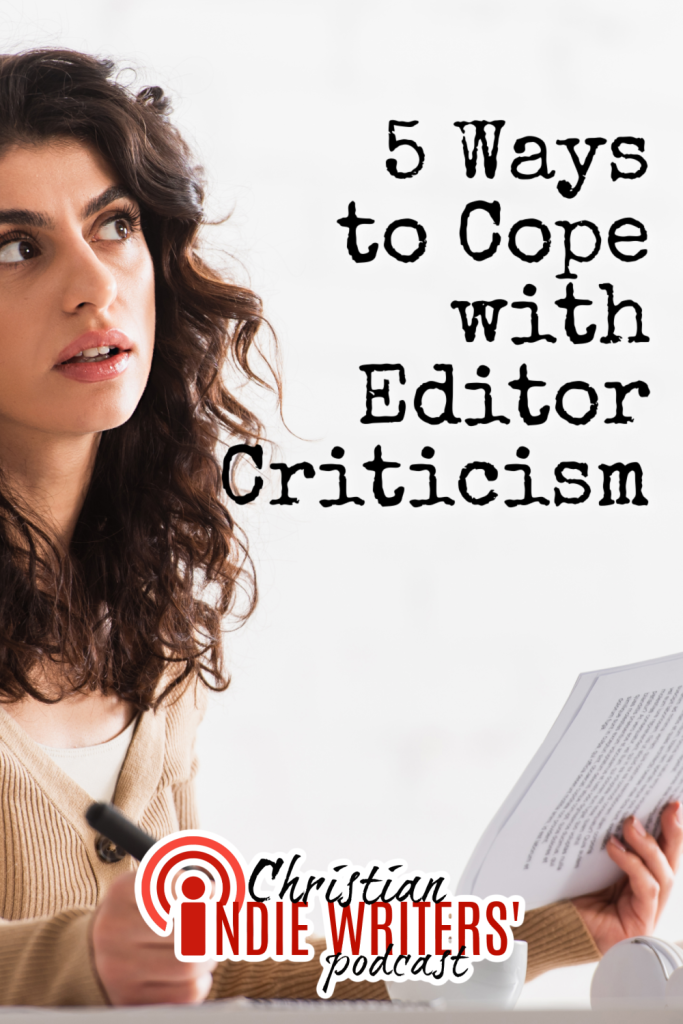
Coping Strategies for Authors: Managing Editorial Criticism with Grace
Receiving editorial feedback can be one of the most challenging aspects of writing. As writers, we pour our hearts into our work, so when criticism arrives, it can feel personal. However, learning to manage emotional reactions to critique is essential for growth and improvement. Here are some coping strategies for handling editorial criticism with grace and professionalism.
Table of Contents
Managing Emotional Reactions to Criticism
First and foremost, it’s okay to feel upset when receiving criticism. However, it’s not okay to react impulsively or act out. Here are some ways to manage your emotions:
- Take a deep breath. Before doing anything else, center yourself and let the initial wave of emotion pass.
- Wait before reacting. Put time between the moment you receive the criticism and your response. This allows emotions to settle and prevents rash decisions.
- Don’t edit immediately. Give yourself space to process the feedback before making changes.
- Don’t respond to your editor right away. A hasty reply may be emotionally charged rather than constructive.
- Don’t delete anything! While frustration may make you want to scrap it all, resist the impulse. Every piece of feedback is a stepping stone to improvement.
It’s crucial to remember that editorial criticism is not a reflection of your worth as a writer or a person. Your editor’s goal is to help make your book the best it can be—not to tear you down. Criticism should never be taken as a reason to give up. That’s an emotional response, not an objective truth.
Viewing Criticism as an Opportunity to Improve
Rather than seeing critique as a negative, shift your mindset to view it as an opportunity for growth. Editors provide feedback to strengthen your writing, and embracing this perspective will make the revision process more productive.
Seeking Clarification and Feedback from Your Editor

Once you’ve taken time to process the feedback, revisit it with a clear mind. If something is unclear, don’t hesitate to reach out to your editor:
- Ask for clarification in writing. Having a written record ensures you can refer back to their explanations.
- Don’t be afraid to ask questions. You are a client, not a nuisance. Understanding their feedback is crucial to your revisions.
Evaluating the Validity of the Editor’s Critiques
Not all feedback may be applicable, and that’s okay. In our previous episode (Episode 247: 5 Reasons Your Editor Hates Your Book), we discussed how to discern what critiques to apply. Evaluate the editor’s suggestions objectively and consider whether they align with your vision for your book.
Revising and Rewriting with a Growth Mindset
Adopting a growth mindset means believing in your ability to improve through effort and persistence. The key components of this mindset include:
- Time – Writing is a craft that improves over time.
- Effort – Diligence and dedication lead to progress.
- Energy – Staying engaged with your work helps you overcome obstacles.
Remember, the process is more important than the immediate outcome. Don’t let the amount of editing overwhelm you—take it one step at a time. You can do this!
Seeking Support from Writing Communities or Mentors
You don’t have to go through the editing process alone. Writing communities, mentors, and beta readers can offer valuable second opinions. If an editor’s feedback feels completely off-base, getting a second opinion before making drastic changes can be beneficial.
We recently discussed this in our Live Q&A for Patreon Patrons, emphasizing the importance of peer support in navigating editorial feedback.
In Closing
Your editor wants your book to succeed just as much as you do. Success requires effort, patience, and a willingness to learn. By managing emotional reactions, viewing feedback as an opportunity, seeking clarification, evaluating critiques objectively, embracing a growth mindset, and seeking support, you can turn the editing process into a valuable and empowering experience.
For a more on this, the ladies tackled this topic in Episode 248 of the Christian Indie Writers Podcast, 5 Ways to Cope with Editor Criticism.
Keep going—you’ve got this! Happy writing!


Jenifer Carll-Tong is the best-selling author of historical Christian romances and co-host of the Christian Indie Writers’ Podcast.
